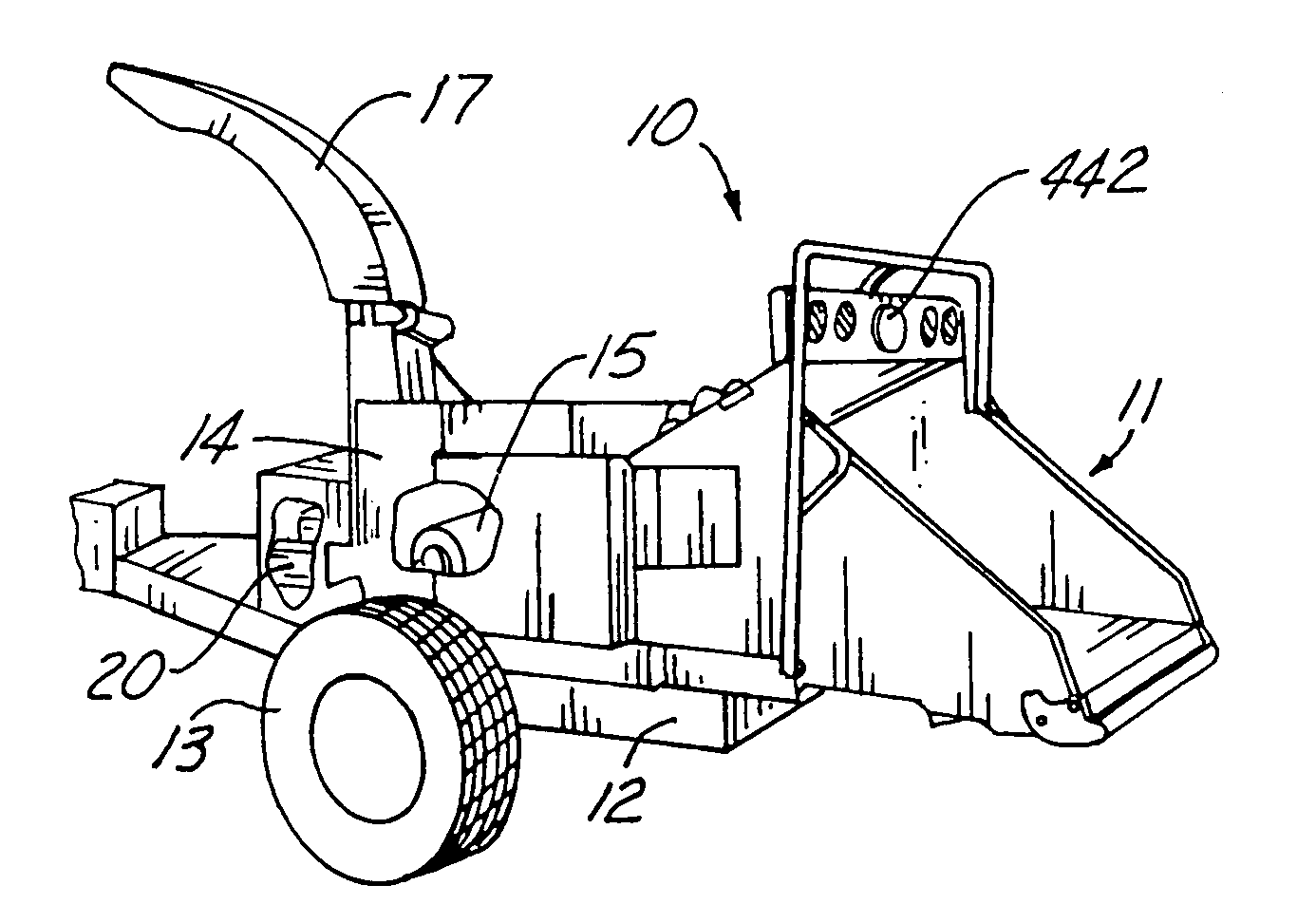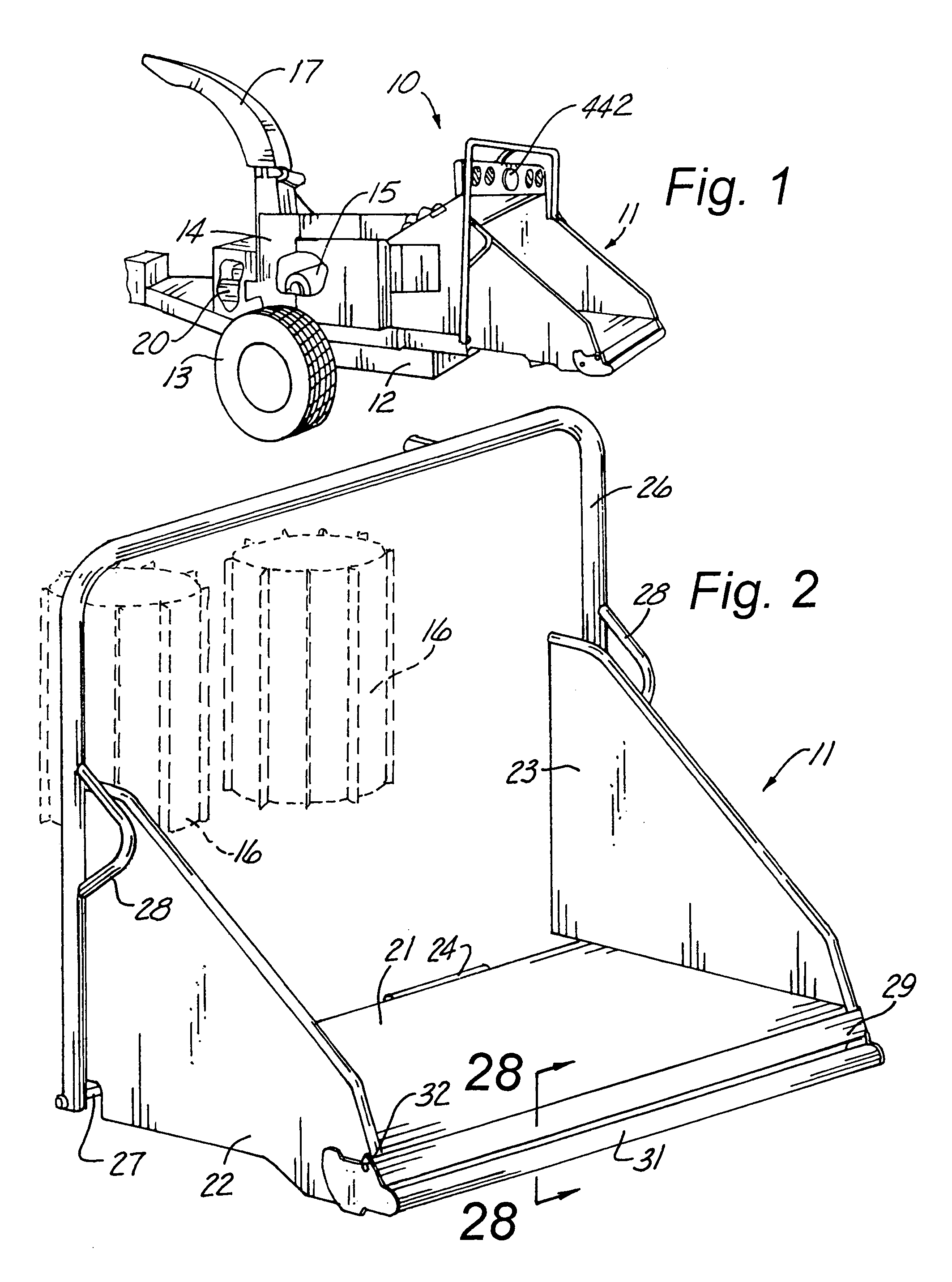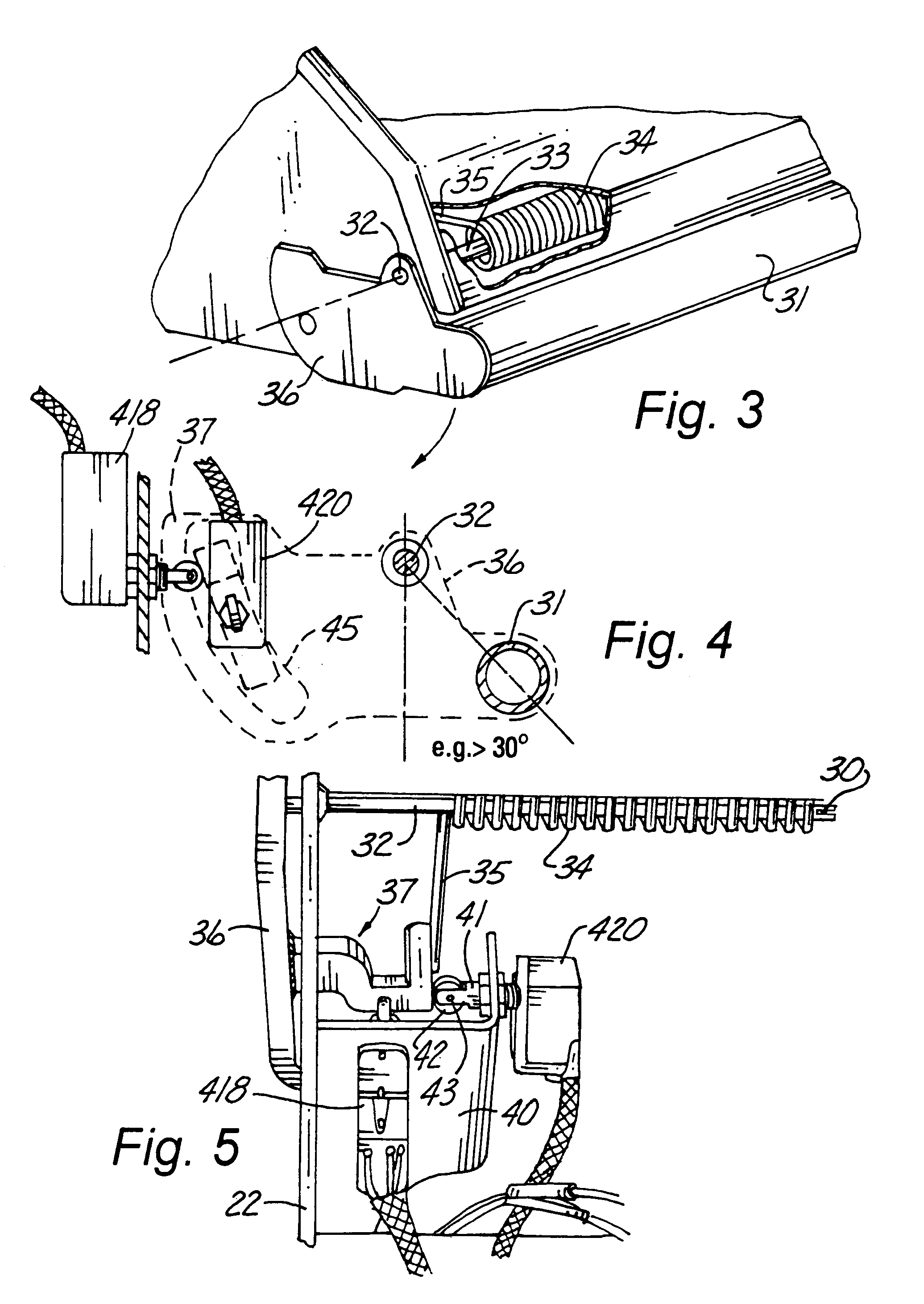Brush chipper and methods of operating same
a chipper and brush technology, applied in the field of brush chippers, can solve the problems of operator attempting to disable the shut-off mechanism, affecting the operation of the same,
- Summary
- Abstract
- Description
- Claims
- Application Information
AI Technical Summary
Benefits of technology
Problems solved by technology
Method used
Image
Examples
Embodiment Construction
[0063]Referring now to the drawings wherein like reference numerals designate identical or corresponding parts throughout the several views, FIG. 1 shows a brush chipper (10) constructed in accordance with the present invention and having a feed table (11) on the rear thereof A frame (12) has wheels (13) rotatably attached thereto to permit the brush chipper (10) to be moved from place to place. A housing (14) has cutters (15) which cut brush that enters the feed table (11), which brush is pulled therethrough by feed rollers (16) and delivers the brush to the cutters to cut the brush and throw chips out a discharge chute (17).
[0064]The feed table (11), as shown in FIGS. 1 and 2, has a bottom portion (21) and side portions (22) and (23). A hinge (24) pivotally attaches the feed table (11) to the frame (12). An upper feed control member (26) is pivotally attached at rod (27) to the frame (12). The feed table (11) is in the operative position shown in FIG. 1, but would be pivoted upwar...
PUM
| Property | Measurement | Unit |
|---|---|---|
| time | aaaaa | aaaaa |
| speed | aaaaa | aaaaa |
| speeds | aaaaa | aaaaa |
Abstract
Description
Claims
Application Information
 Login to View More
Login to View More - R&D
- Intellectual Property
- Life Sciences
- Materials
- Tech Scout
- Unparalleled Data Quality
- Higher Quality Content
- 60% Fewer Hallucinations
Browse by: Latest US Patents, China's latest patents, Technical Efficacy Thesaurus, Application Domain, Technology Topic, Popular Technical Reports.
© 2025 PatSnap. All rights reserved.Legal|Privacy policy|Modern Slavery Act Transparency Statement|Sitemap|About US| Contact US: help@patsnap.com



